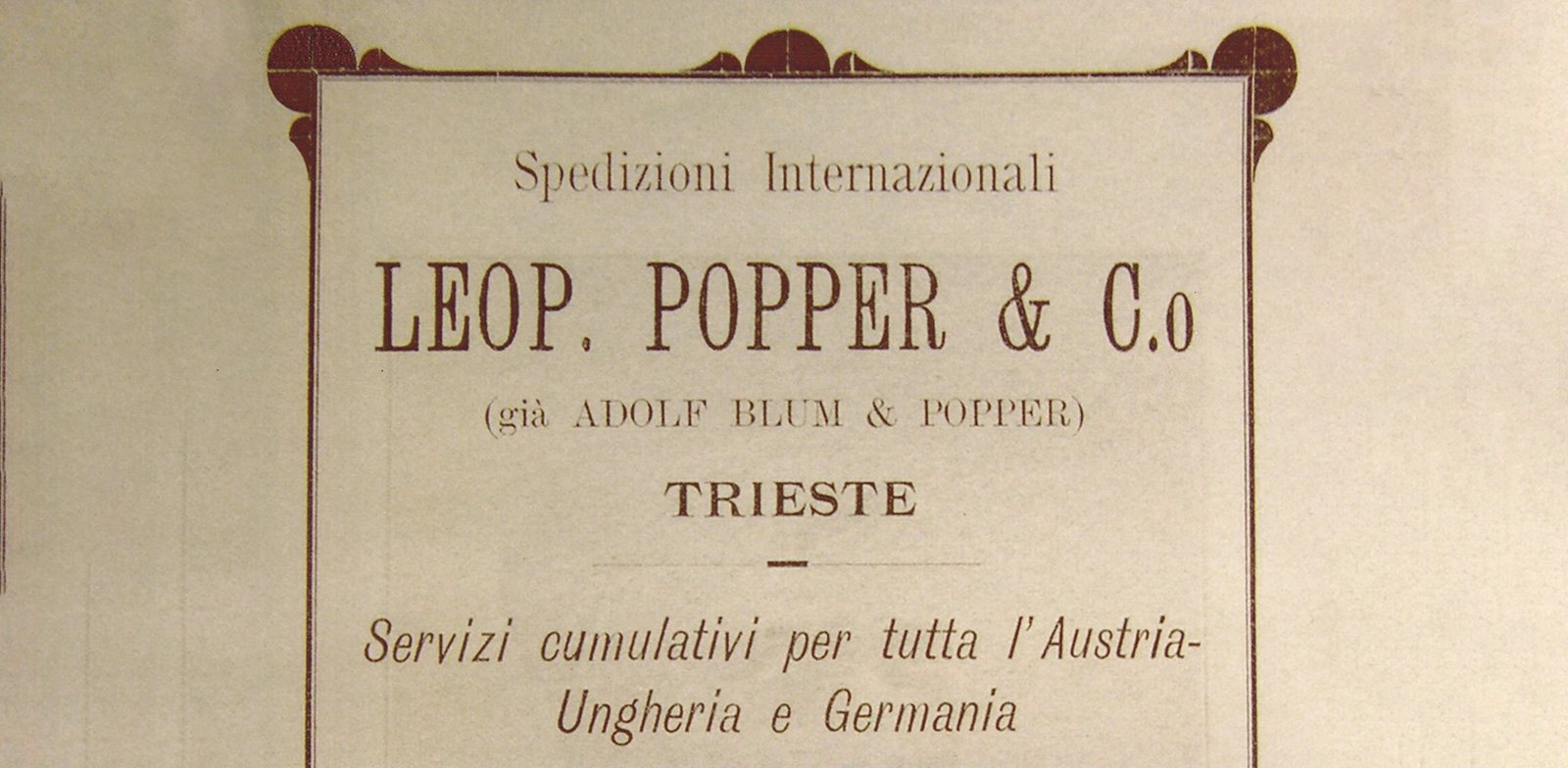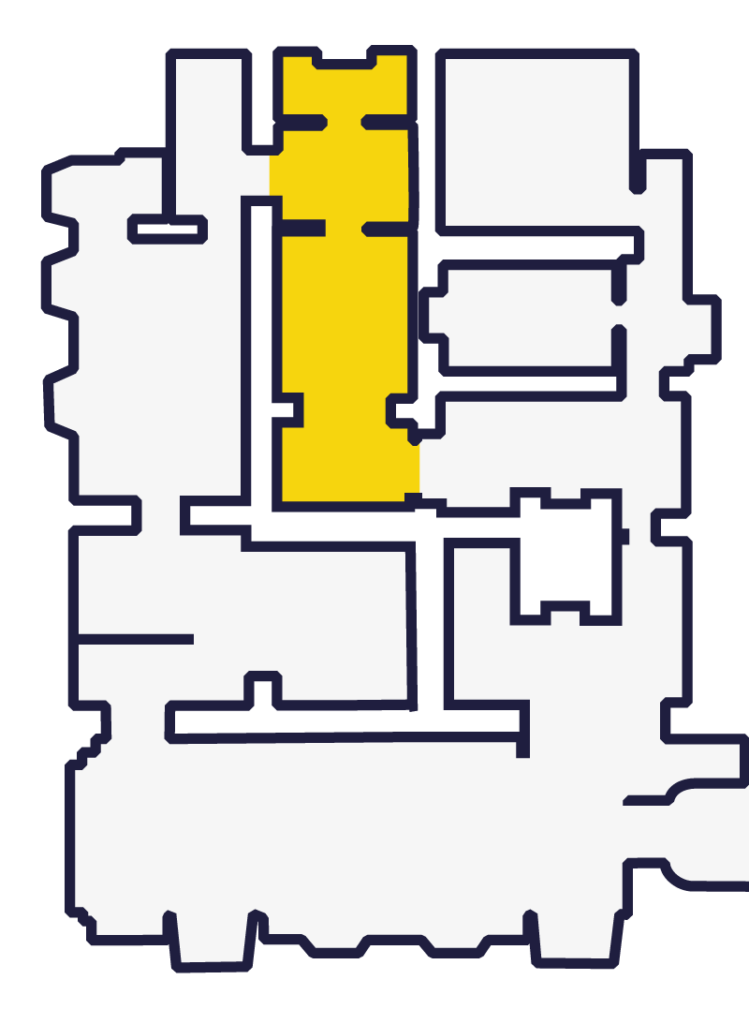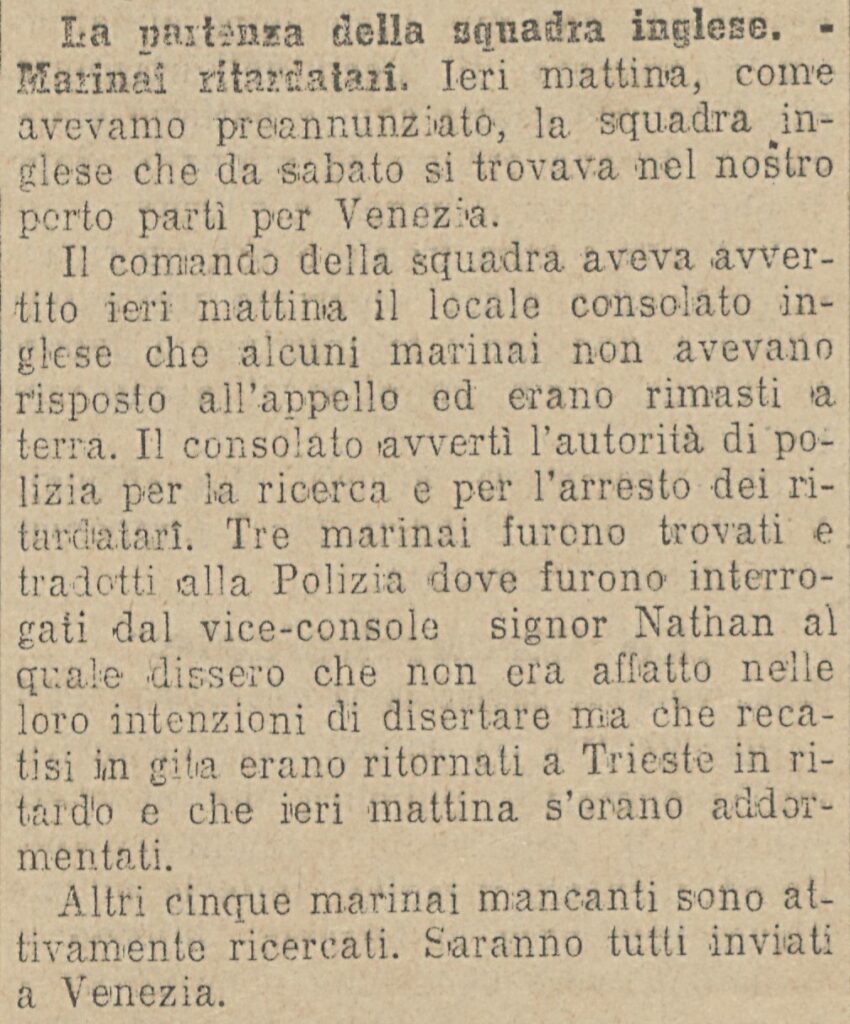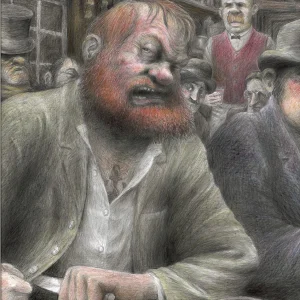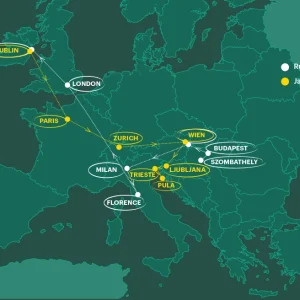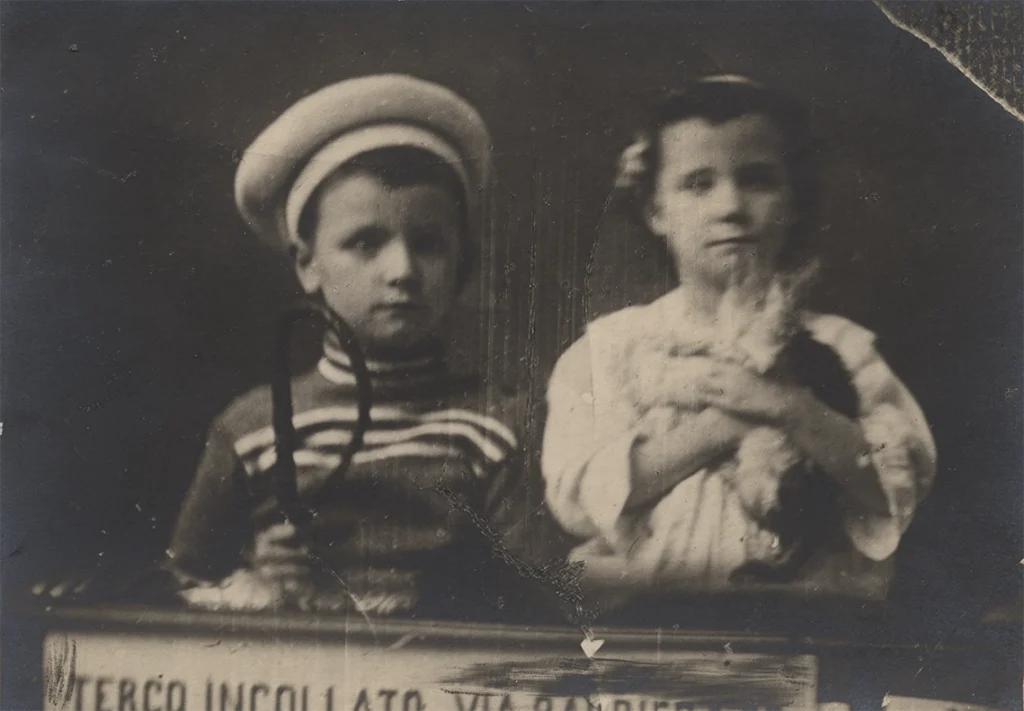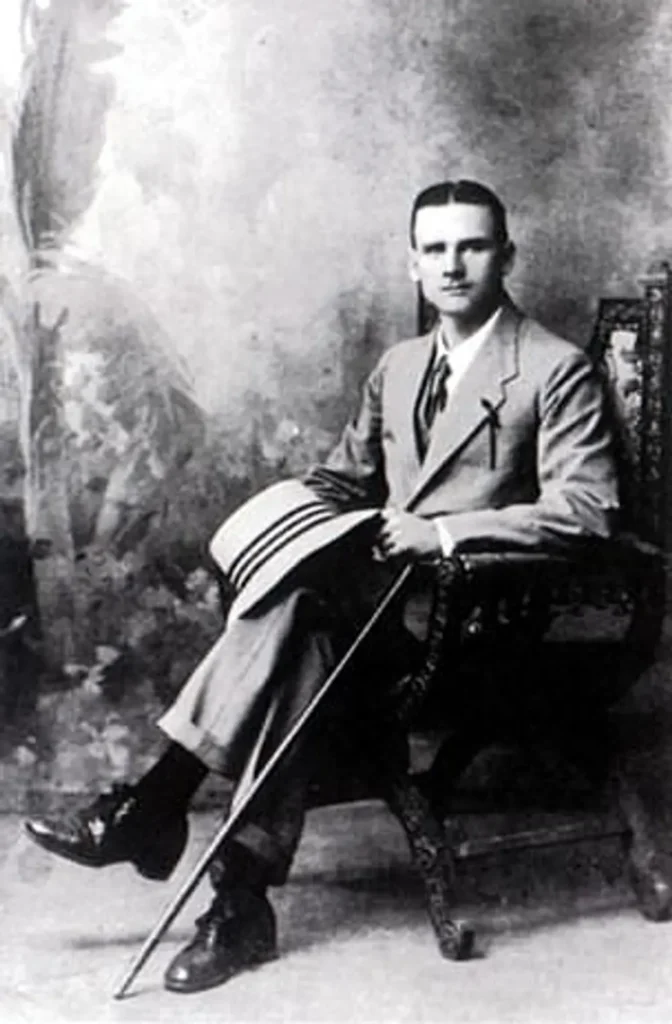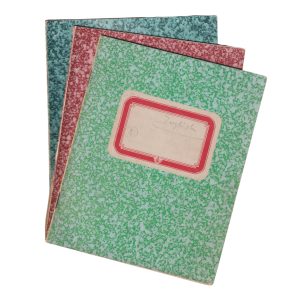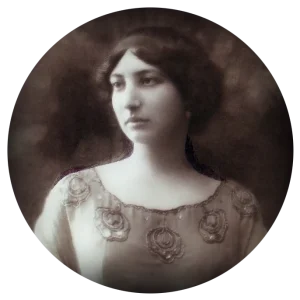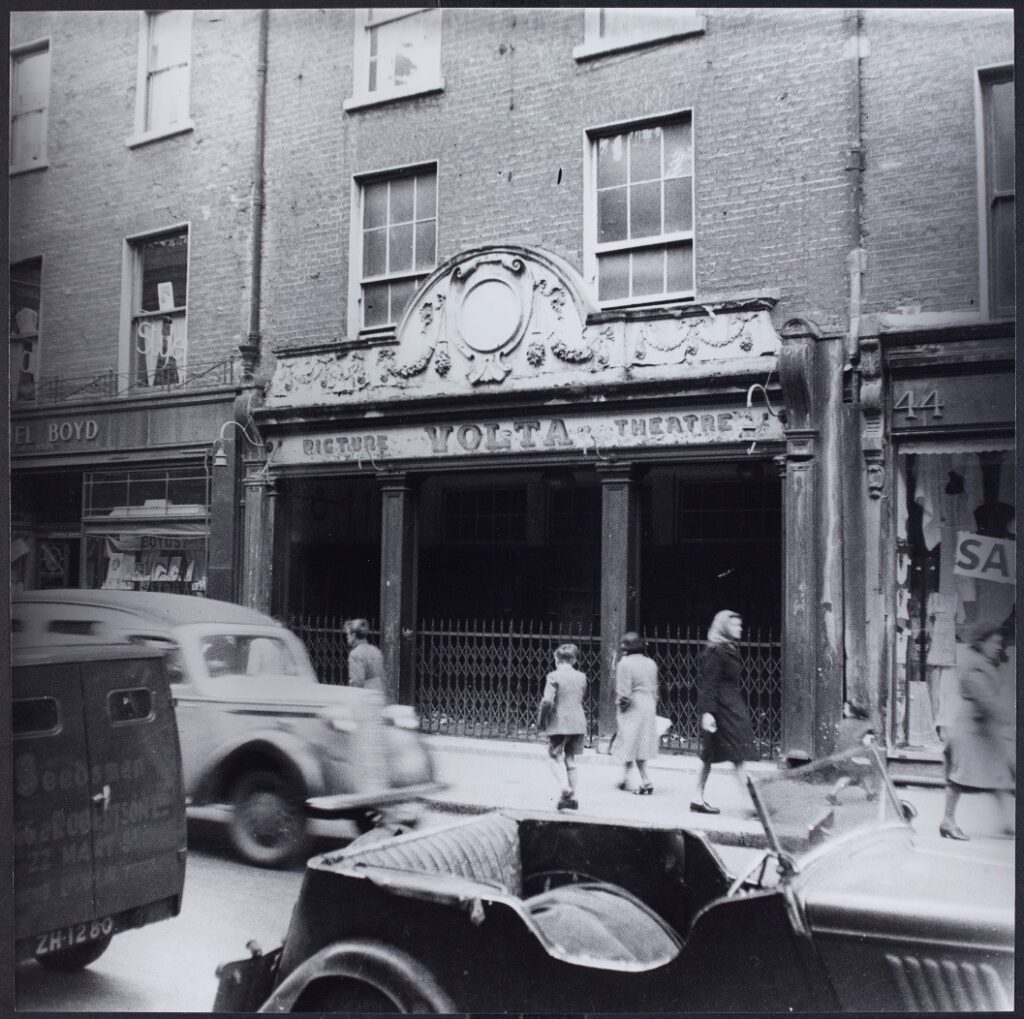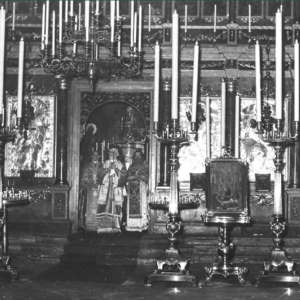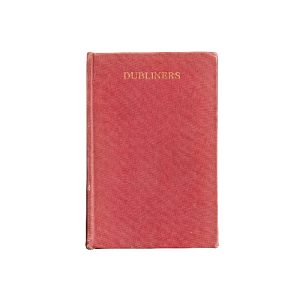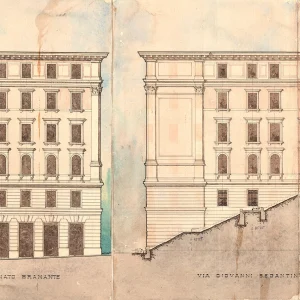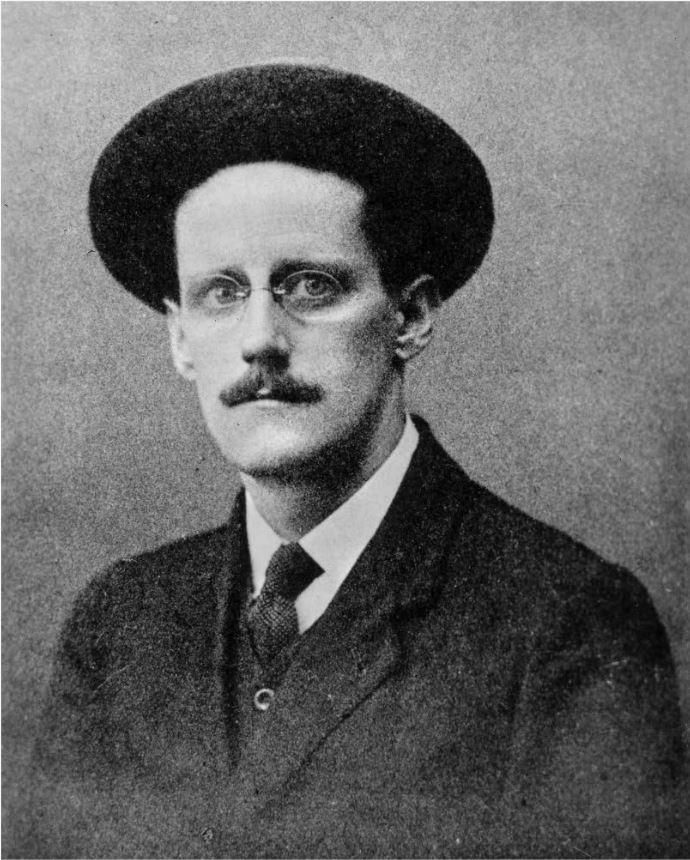1904
A difficult start
When James and Nora left Dublin, they were headed to Zurich where the local branch of the Berlitz School, a famous multinational language teaching company, had been supposed to offer James a position as an English teacher. Since the position was already filled, they were directed on to the Trieste office, where they arrived after a night on the tiles in Ljubljana, where they got off the train, convinced they had reached their destination. As soon as they arrived in Trieste, James left Nora in the park opposite the station and went looking for accommodation. A couple of hours later, Joyce was arrested, due to a comical mistake, but the British consul got him released. The following morning, Joyce went to the Berlitz only to be informed that the coveted position was not available there either, so the couple were shunted on to the branch in Pula, the capital of the Istrian peninsula.
Above: English sailors in the port of Trieste in October 1904 > coll. Fototeca CMSA
Trieste in Ulysses
Postcard
A photograph from the 1904 Trieste police archive, which shows the spot where the corpse of (...) OPEN
- Display Case
- Display Case
Pula, a view of the city centre in the early 20th century > coll. Museo Joyce – Fondo fotografico
1905
1907
«La nostra bella Trieste»
When the couple’s first child, Giorgio, was born on 27th July 1905, the Joyces had already moved to an apartment in Via San Nicolò, very close to the Berlitz School itself. On 26th July 1907 the couple’s daughter, Lucia, was born. As in Dublin, Pula and later in Zurich and Paris, sudden changes of residence represented a constant in Joyce’s life. At the origin of this habit lay their economic difficulties as well as the frequent changes in the family composition. Yet the mobility of the Joyce family was not an exception but rather the rule in early 20th century Trieste, where tenants often changed house every six months or so.
The Berlitz School is located next to the Roman arch known as Porta Aurea. The arrival in the Istrian city, home to the Austrian Navy Arsenal, was not the best. With a cold, damp apartment and very few occasions for socializing, to Joyce Pula seemed like a “naval Siberia”
The Joyces in Trieste
Postcard
Lucia Joyce in a class photo at the Scuola popolare in via Parini (ca. 1912-1915)> Buffalo (...) OPEN
Berlitz School’s “Il Poliglotta”
Postcard
“Il Poliglotta. Giornale mensile dedicato alle gentili Alunne ed egregi Alunni della Berlitz School”, year I, no. 2, October 1902, p. 1 and 9. (...) APRI
- Display Case
- Display Case
Trieste - Gibraltar – Trieste
In 1939, Herbert Gorman, one of Joyce’s friends in Zurich, published Joyce’s first authorised and verified biography. In it, there is a long description of Trieste. The textual correspondences between the snapshot of Trieste in Gorman and Molly’s childhood memories of Gibraltar are remarkable.
So, if on the one hand it becomes clear that Molly’s Gibraltar in the final episode of Ulysses owes a lot to Joyce’s Trieste, on the other hand it is as if, when he was accompanying Gorman in the writing of the biography, Joyce had the famous ending of his masterpiece in mind.
HERBERT GORMANN, James Joyce, 1939
New stories for Dubliners were sketched out and then written. And he dove into the variegated life of Trieste with the pleasure of a dolphin diving in familiar waters. Every aspect of the city seemed to please him, the picturesque life along the quays,
the diverse ways of the Citta Vecchia with their wine shops and cheap restaurants, the oxcarts rumbling through the streets, the constant processions when red blankets hung out of windows and candles glimmered behind them, the Albanians in native costumes the and the brilliantly shawled women for none of them wore hats
leaving the theatres, the countless barrels of coffee outside shops and their rich odour impregnating the air,
the giant watermelons piled in the squares and the lights flaring on their crimson succulence
until two or three o’clock in the morning,
the Sunday loiterers playing bowls or mora,
the carnival masks crowding the streets on Shrove Tuesday, the nutria caps and fur coats and coloured collars and silk shawls passing on all sides
the side-whiskered image of the Emperor Franz Joseph in white tunic adorning every tobacco shop,
the huge powdered beadle at the Opera who bawled for carriages and the three opera seasons themselves the Christmas and Carnival season at the Teatro Communale and the summer season in the open-air theatre and the autumn season at the Politeama,
the excited jabber of buyers and sellers in the markets for there were no set prices, the smell of fish and the sight of sea spiders cooked in their shells, the innumerable taverns
bear ing Christian names and, above all, the Triestines, charitable, witty, irreligious, sceptical, fond of cakes and the black wine of Istria and the fortified vin rosé the Opollo from Lissa. Even the ‘bora,’ that dreadful wind that blew so fiercely through the town that ropes had to be stretched across the streets to aid pedestrians, fascinated himas one of the irresistible phenomena of nature. Many years later he remarked to a friend: “I cannot begin to give you the flavour of the old Austrian Empire. It was a ramshackle affair but it was charming, gay, and I experienced more kindnesses in Trieste than ever before or since in my life . . . Times past cannot return but I wish they were back.”
JAMES JOYCE, Ulysses, 'Penelope' 1580-1600
I wouldnt answer first only looked out over the sea and the sky I was thinking of so many things he didnt know of Mulvey and Mr Stanhope and Hester and father and old captain Groves
and the sailors playing all birds fly and I say stoop and washing up dishes
they called it on the pier
and the sentry in front of the governors house with the thing round his white helmet
poor devil half roasted and
the Spanish girls laughing in their shawls and their tall combs and the auctions in the morning the Greeks and the jews and the Arabs and the devil knows who else from all the ends of Europe
and Duke street and
the fowl market all clucking
outside Larby Sharons and the poor donkeys slipping half asleep and the vague fellows in the cloaks asleep in the shade on the steps and
the big wheels of the carts of the bulls and the old castle thousands of years old
yes and those handsome Moors all in white and turbans like kings
asking you to sit down in their little bit of a shop
and Ronda with
the old windows of the posadas 2 glancing eyes a lattice hid
for her lover to kiss the iron and
the wineshops half open at night
and the castanets and the night we missed the boat at Algeciras the watchman going about serene with his lamp and O that awful deepdown torrent
O and the sea the sea crimson sometimes like fire
and the glorious sunsets and the figtrees in the Alameda gardens yes and all the queer little streets and the pink and blue and yellow houses and the rosegardens and the jessamine and geraniums and cactuses and Gibraltar as a girl where I was a Flower of the mountain yes when I put the rose in my hair like the Andalusian girls used or shall I wear a red yes and how he kissed me under the Moorish wall and I thought well as well him as another and then I asked him with my eyes to ask again yes and then he asked me would I yes to say yes my mountain flower and first I put my arms around him yes and drew him down to me so he could feel my breasts all perfume yes and his heart was going like mad and yes I said yes I will Yes.
1907
1912
Journalist, lecturer, businessman
After eight unhappy months spent in Rome working as a correspondent for a bank, Joyce returned to Trieste. Italo Svevo became a student of his. Another student, Roberto Prezioso, asked him to write some articles for “Il Piccolo della Sera” on Ireland. Their allusive parallelism between Trieste’s relationship with Austro-Hungary and Ireland’s relationship with Britain appealed to irredentist readers. Joyce’s 1907 lecture at the Università Popolare (“Ireland, island of saints and sages”) was also about Ireland. He successfully continued to lecture also on non-Irish topics (Shakespeare in primis). The local press was clearly in trouble with the spelling of his name, which was given as ‘James Joice’, ‘James Zois’, ‘James Yoyce’ and ‘Zanus Joyce’. In Ulysses, Leopold Bloom also has his name regularly, and comically, misspelled.
- Display Case
- Display Case

1912
1920
«Tergestis exul»
Life in the Joyce household was not easy: tensions with Stannie and his sisters as well as with the publisher of Dubliners, the composition of Portrait, of Giacomo Joyce and Exiles, shortage of money, evictions… In September 1912 Stannie found for him a new flat on number 4, Via Bramante. It was the beginning of a relatively peaceful period. Joyce began to write Ulysses, but the war forced him and his family to leave (Stannie is interned in Austria). They spent the war years in Zurich and came back to Trieste in October 1919, to share a flat in 2, Via Sanità, with Stannie, Eileen and her husband. Here Joyce continued working on Uysses. In 1920 he accepted Ezra Pound’s invitation to move to Paris. He would never return to Trieste again.
- Display Case
